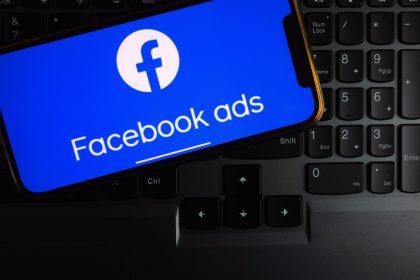Remember when WhatsApp was just a simple, clean messaging app that let you chat with friends and family without any corporate interference? Those days are officially over. Your favorite messaging platform just crossed a line that millions of users hoped would never be crossed, and the implications for your digital privacy and user experience are more significant than you might realize.
The writing has been on the wall for years, but now it’s becoming reality in ways that could fundamentally change how you interact with one of the most popular communication tools on the planet. We’re talking about a transformation that affects over 1.5 billion users worldwide, including probably everyone in your contact list.
The advertising invasion that nobody wanted
Here’s what’s happening to your WhatsApp experience whether you like it or not. Meta has officially launched advertising within the Updates section of the app, which means you’ll now see sponsored content mixed in with the status updates from your actual friends and family members. This isn’t some optional feature you can try if you’re interested; it’s being rolled out globally to everyone.
The Updates tab, which functions like Instagram Stories or Snapchat’s disappearing content feature, will now include business advertisements that look like regular status updates, promoted channel suggestions when you browse for new content, and subscription based content from businesses that want to charge for premium access to their channels.
What makes this particularly frustrating is that WhatsApp’s founders were completely opposed to advertising on the platform. They built the app with the specific intention of creating an ad free communication experience that prioritized user privacy over corporate profits. But after Meta’s acquisition, those principles have been gradually eroded in favor of revenue generation.
The clever way they’re justifying this invasion
Meta is trying to frame this advertising rollout as a natural evolution of messaging services, pointing to similar features on competing platforms like Snapchat and Telegram. They’re also emphasizing that ads won’t appear in your actual private chat conversations, as if that somehow makes the intrusion more acceptable to users who chose WhatsApp specifically because it wasn’t cluttered with marketing messages.
The company promises they won’t use your private messages, phone calls, or group conversations to target advertisements, but they will use your location data, language preferences, interaction patterns with ads, and the channels you follow to determine which sponsored content to show you. If you’ve linked your WhatsApp account to Facebook or Instagram, expect even more personalized advertising based on your activity across all Meta platforms.
The money grab behind the privacy promises
Let’s be completely honest about what’s driving this decision. Meta generated more than $160 billion in advertising revenue last year, and WhatsApp has been the only major platform in their portfolio that wasn’t contributing to those massive profits. From a corporate perspective, leaving that much money on the table doesn’t make sense when shareholders are demanding consistent growth.
The advertising rollout represents the final step in WhatsApp’s transformation from an independent messaging service focused on user privacy into another revenue generating component of Meta’s advertising empire. This has been the inevitable destination since the acquisition, despite years of promises about maintaining the app’s ad free experience.
The subscription model that changes everything
Beyond just showing you advertisements, WhatsApp is introducing a subscription model that allows businesses to charge users for access to premium content through their channels. Meta will take a 10% commission from these subscription fees, plus additional cuts may be taken at the app store level depending on the size of the business involved.
This creates a completely new dynamic where businesses can use WhatsApp not just for customer communication, but as a platform for generating recurring revenue through exclusive content offerings. Think of it like a newsletter or membership site, but integrated directly into your messaging app whether you want it there or not.
How this affects your daily messaging experience
The immediate impact on your WhatsApp usage depends largely on how you currently interact with the Updates section of the app. If you regularly check status updates from friends and browse for new channels to follow, you’ll definitely notice the advertising integration. If you primarily use WhatsApp for direct messaging and group chats, the changes might be less intrusive initially.
However, the bigger concern is about the precedent this sets for future monetization efforts. Once advertising infrastructure is built into the platform, it becomes much easier to expand those features into other areas of the app. What starts as ads in the Updates section could eventually creep into other parts of your WhatsApp experience.
The regional differences that reveal everything
Interestingly, WhatsApp executives have acknowledged that the Updates feature isn’t particularly popular in markets like the UK, where users primarily view the app as a straightforward messaging tool. In other parts of the world, users are more engaged with content feeds and status sharing, making those markets more attractive for advertising rollouts.
This regional difference highlights a fundamental tension in Meta’s approach to WhatsApp monetization. The advertising features work best in markets where users are already comfortable with social media style content consumption, but those same features could drive away users in markets where WhatsApp is valued specifically for its simplicity and focus on private communication.
The broader implications for messaging privacy
While Meta promises that your private messages remain encrypted and won’t be used for advertising purposes, the introduction of ads represents a philosophical shift that could have longer term implications for user privacy and platform integrity. Once commercial interests become primary drivers of platform development, user experience often becomes secondary to revenue optimization.
The advertising rollout also raises questions about data collection and user profiling that extend beyond just the ads themselves. Even if your messages aren’t being read for advertising purposes, the platform is collecting increasingly detailed information about your behavior, preferences, and social connections to make their advertising more effective.
What this means for WhatsApp’s competitive position
The introduction of advertising puts WhatsApp in direct competition with other messaging platforms that have maintained their focus on private communication without commercial interference. Apps like Signal, which prioritize user privacy above all else, become more attractive alternatives for users who are frustrated with Meta’s monetization efforts.
This competitive pressure could actually benefit users in the long run by forcing messaging platforms to differentiate themselves based on privacy features and user experience rather than just network effects and convenience. When users have clear alternatives that respect their privacy preferences, platforms have stronger incentives to maintain user friendly policies.
The permanent changes you can’t avoid
One of the most frustrating aspects of these updates is how they’re being implemented as permanent features that users can’t disable or customize according to their preferences. Just like the controversial AI tool button that was recently added to WhatsApp without an option to remove it, these advertising features are being integrated into the core app experience.
WhatsApp executives justify this approach by arguing that too many customization options create complexity that degrades the user experience. But this reasoning conveniently ignores the fact that many users would prefer a more complex interface if it meant maintaining control over their privacy and advertising exposure.
Preparing for the future of messaging
As these changes roll out globally, users need to make informed decisions about whether WhatsApp still meets their communication needs and privacy expectations. The platform that many people adopted specifically because it offered a clean, ad free messaging experience is evolving into something fundamentally different that prioritizes corporate revenue over user preferences.
The good news is that you still have choices about how you communicate digitally. Alternative messaging platforms exist that maintain stronger commitments to user privacy and ad free experiences. The question is whether the convenience and network effects of staying on WhatsApp outweigh the privacy and user experience compromises that come with Meta’s advertising integration.
This transformation of WhatsApp represents a broader trend in how tech companies monetize popular platforms after they’ve achieved market dominance. Understanding these dynamics helps you make better decisions about which digital tools deserve your trust and personal data in an increasingly commercialized online environment.

















